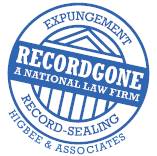 Governor Jerry Brown signed into law California Senate Bill 530, which expands the California Labor Code to increase the benefits of a California expungement. With the passage of the new bill, SB 530, employers are now prohibited from asking an applicant to disclose information concerning a conviction that has been judicially dismissed (expunged).
Governor Jerry Brown signed into law California Senate Bill 530, which expands the California Labor Code to increase the benefits of a California expungement. With the passage of the new bill, SB 530, employers are now prohibited from asking an applicant to disclose information concerning a conviction that has been judicially dismissed (expunged).
California Labor Code section 432.7 previously prohibited an employer from asking an applicant for employment to disclose information concerning an arrest that did not result in a conviction.
Senate Bill 530 Helps Employees Keep Their Expunged or Sealed Records Private
Senate Bill 530 expanded section 432.7 to prohibit an employer from asking an applicant to disclose information concerning a conviction that has been expunged or sealed pursuant to law, including, but not limited to, Sections 1203.4, 1203.4a, 1203.45, and 1210.1 of the Penal Code. Additionally, an employer may not seek from any source any record concerning a conviction that has been expunged or sealed. Employers are also forbidden from using an expunged or sealed conviction as a factor in determining any condition of employment, including hiring, promotion, or termination.
The law does provide a few exceptions to these prohibitions. An employer is permitted to ask an applicant to disclose an expunged conviction and to use the expunged conviction as a factor to determine employment if: (1) the employer is required by law to obtain that information; (2) the applicant would be required to possess or use a firearm in the course of his or her employment; (3) an individual who has been convicted of a crime is prohibited by law from holding the position sought by the applicant, regardless of whether that conviction has been expunged, judicially ordered sealed, statutorily eradicated, or judicially dismissed following probation; or (4) if the employer is prohibited by law from hiring an applicant who has been convicted of a crime.
What Did Senate Bill 530 Change?
Prior to the passage of SB 530, an expungement in California allowed the individual to deny the existence of the conviction in most circumstances; however, if an employer did discover the existence of the case, there was nothing preventing the employer from discriminating against that applicant on the basis of their expunged conviction.
Attorney Mathew Higbee, founder of the Law Firm of Higbee & Associates and RecordGone.com, was a lead contributor to SB 530, authored by Senator Roderick Wright. Higbee testified in support of the bill in June of 2013 to the California State Senate’s Committee On Public Safety. During his testimony, Higbee said, “in many ways, California is very progressive and innovative when it comes to helping former offenders. We provide drug treatment, continuing education, job training, and even tattoo removal. But California does not remove the one thing that many other states do, and that is the label of criminal. California’s law governing expungement and other post-conviction remedies are inadequate, as a result, all of those investments in rehabilitation and training are marginalized— leading to unnecessary unemployment, under-employment, and waste of human capital.”
With the passage of SB 530, California has taken a huge step towards offering its citizens the opportunity for a second chance. The changes enacted through the passage of SB 530 will enhance the opportunities available to former offenders throughout the state. While the benefits of an expungement can be expanded even further through future legislation, this is a great first step that provides increased benefits to those that have received an expungement in California and those that are eligible for this relief in the future.



